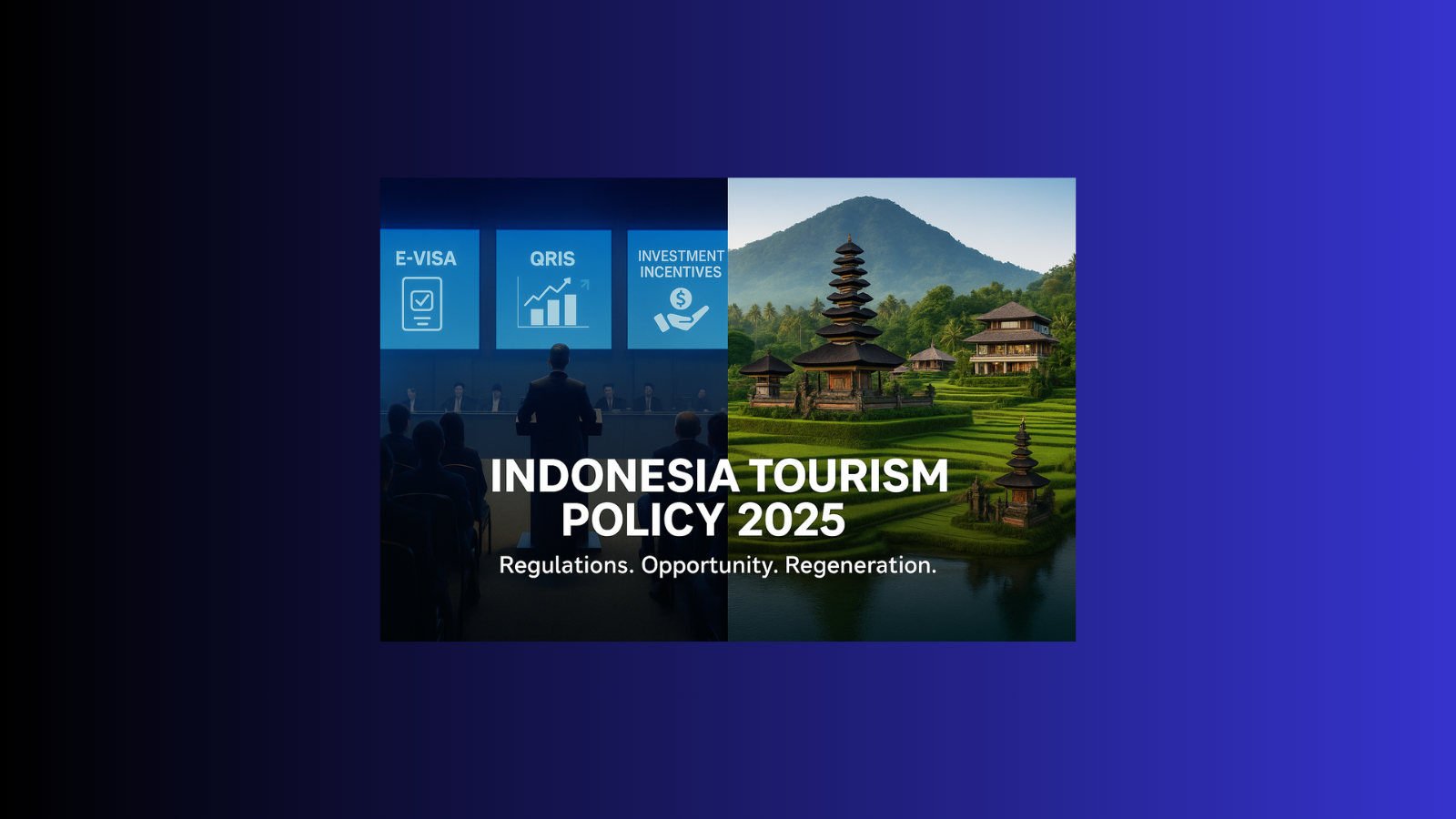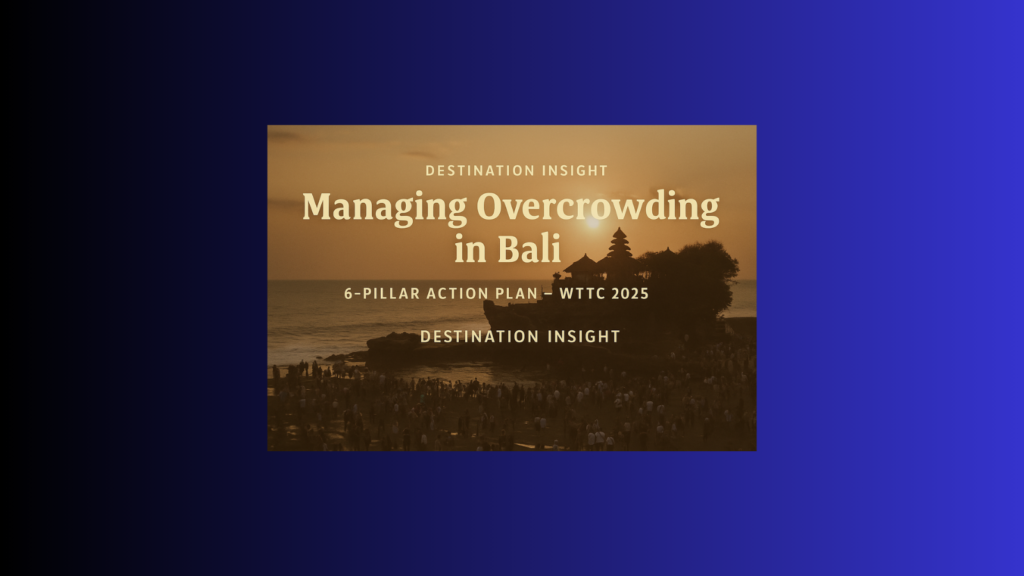Introduction
Indonesia tourism policy 2025 is undergoing a bold transformation—ushering in smarter regulations, tax incentives, and digital frameworks to elevate the country’s global position. These changes aren’t just bureaucratic—they are strategic levers for operators, investors, and developers aiming to lead in Southeast Asia’s next tourism chapter.
From the shores of Bali to the emerging zones of Mandalika and Labuan Bajo, government innovation is rewriting the tourism playbook. This article unpacks the most critical changes and how they translate into real-world advantages.

1. Indonesia Tourism Policy 2025: Shift Toward High-Value Travel
Indonesia’s Ministry of Tourism and Creative Economy (Kemenparekraf) has taken major steps to move the nation away from low-spend mass tourism toward “regenerative, inclusive tourism”. The 2025 framework emphasizes:
- Remote Worker Visa Program: Aimed at digital nomads, this new category enables long-term stays with simplified compliance.
- Expanded Visa-Free Entry: Streamlined processes for more nationalities to encourage high-spend travelers.
- Sustainable Tourism Roadmap: Mandates environmental protection, local community benefits, and carbon-conscious development.
This shift is more than a policy signal—it’s a structural redesign that prioritizes value per visitor over volume. It reflects the intent behind Indonesia tourism policy 2025 to prioritize quality over quantity.
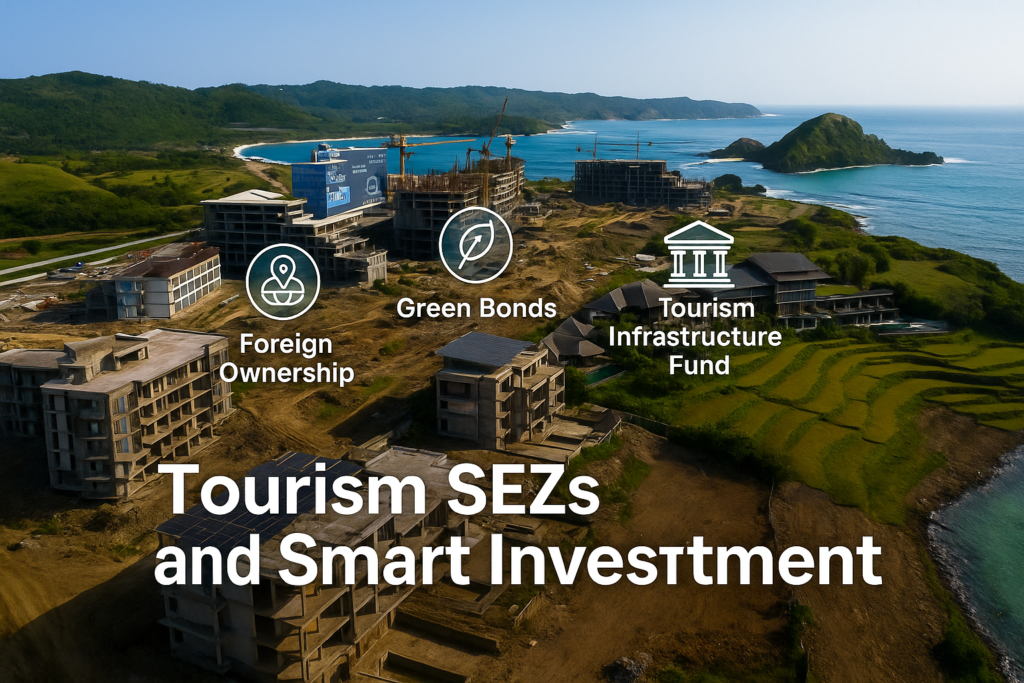
2. Unlocking Investment Through Smart Regulation
Recent government initiatives are making Indonesia far more attractive to developers and foreign capital. Key highlights include:
- 100% foreign ownership now permitted in key hospitality sectors
- Fast-track permits, land tax reductions, and duty exemptions for strategic projects
- Tourism Infrastructure Funds to support green and smart infrastructure
- Special Economic Zones (SEZs) with tailored incentives for integrated tourism clusters
Developers looking at regions like Mandalika, Likupang, and Labuan Bajo are now seeing major returns thanks to bundled support from the Indonesia Investment Authority.
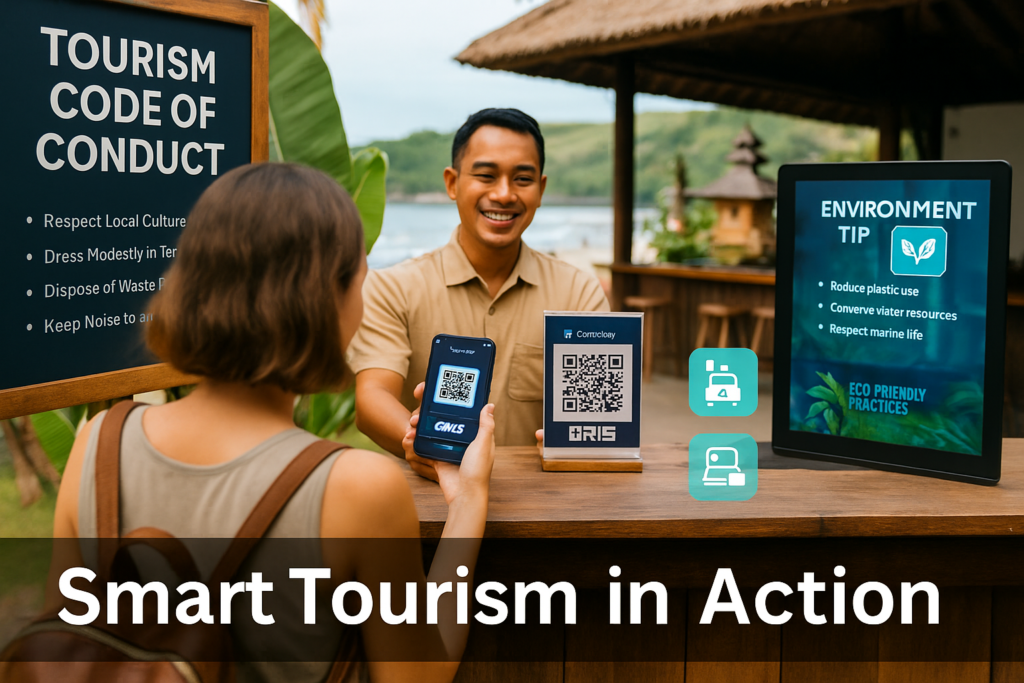
3. Bali: From Iconic Destination to Regulatory Testbed
Bali continues to lead the national transition through pilot programs and enforcement models that could shape wider policy. In 2025, the island is implementing:
- Mandatory tourist code of conduct and visitor levies
- Island-wide QRIS cashless payment adoption and digital visitor tracking
- Integration of AI assistants, smart signage, and real-time analytics
- Crackdown on illegal rentals and unlicensed villas to improve formal-sector integrity
These changes are part of a broader “Smart Island” blueprint that aligns with the goals outlined in our Digital Transformation in Bali Tourism.
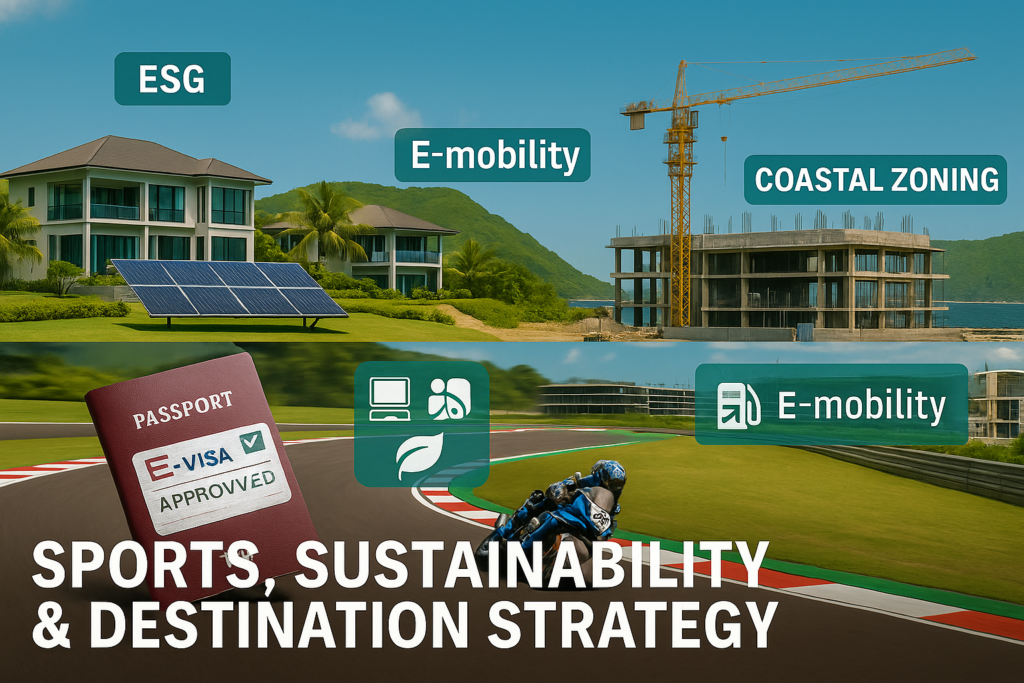
4. Mandalika and Lombok: Targeted Growth Through Sports and Sustainability
With MotoGP events and international investment pouring in, Mandalika represents the success of sector-specific policy strategy:
- Massive co-investment in MICE and resort infrastructure
- Power infrastructure built on solar, e-mobility, and circular waste systems
- Priority green zone for ESG-compliant operators
This region is the centerpiece of Indonesia’s vision for sports-driven tourism, previously covered in our Lombok Tourism Growth Strategy.
5. Navigating Indonesia Tourism Policy 2025: From Complexity to Clarity
For developers and investors, understanding how to navigate Indonesia’s tourism policy in 2025 is key to avoiding delays and unlocking opportunity. Here’s what to monitor:
- Land Use Rules: Zoning and titling now have clearer guidelines, especially for tourism clusters
- Tax Incentives: Project-based fiscal benefits are tied to sustainability and innovation metrics
- Licensing: Unified permit systems are being trialed to replace fragmented bureaucratic processes
Developers working in Bali or SEZs like Mandalika should work closely with legal teams to align their development model with these frameworks.
Strategic Guide to Indonesia Tourism Policy 2025 Compliance
Conclusion: From Policy to Possibility
Indonesia’s tourism policy for 2025 is not just a regulatory shift—it’s a roadmap for smarter, more inclusive development. With support from both national and regional governments, the right policy-informed projects will not only meet compliance but lead the next wave of destination growth.
For hospitality leaders, investors, and advisors, the message is clear: get strategic, get compliant, and get ahead. This marks a defining moment in the evolution of Indonesia tourism policy 2025.
Looking for expert hospitality management services in Bali? Partner with Zenith Hospitality Global and elevate your property to 5-star standards.
Email: hello@zenith-hospitality.com
Phone: +62 821 4480 7110
Website: https://zenith-hospitality.com/

